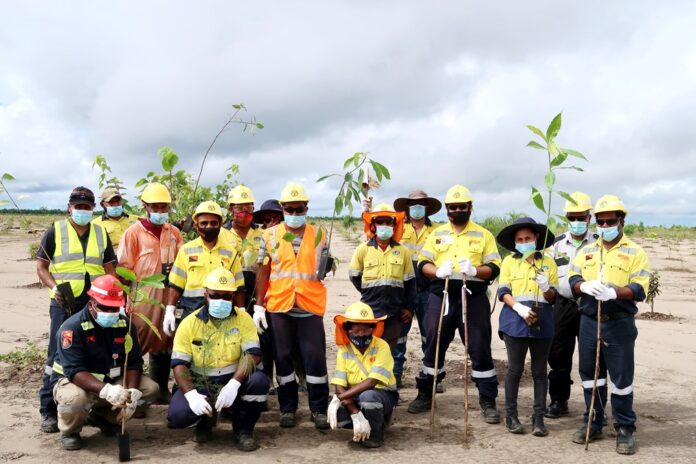
OK TEDI Mining Limited (OTML) commemorated the World Environment Day on June 5 by planting over 1,000 trees in Tabubil, and at its Mine Waste Management project site at Bige located 80 kilometres downriver from the mine.
In line with this year’s World Environment Day (WED) Theme ‘Ecosystem Restoration’, the Bige project is testament of the company’s commitment to rehabilitate and restore the ecosystem that is impacted by the mining operations.
The dredging project was established in 1997 as one of OTML’s mitigation measures to reduce impacts on the environment and the livelihoods of the people that rely on the river system.
The dredge removes at least 10 million cubic meters of sand annually which reduces river bed levels and prevents overbank flooding and forest dieback from occurring.
The dredged sand is hydraulically placed in engineered stockpiles on the east and west banks at Bige covering an area of 1000 hectares of land that had been impacted by dieback in the mid-1990s. Since the commencement of the dredge operations, over 200 million cubic metres of material have been dredged from the lower Ok Tedi river.
In a statement, the OTML Environment Department Manager, Jesse Pile said, “after more than two decades of dredging, at a cost of USD55 million (K193 million) per annum, the riverbed levels have reduced by two to four metres in the lower Ok Tedi, and have stabilised, including in the Middle Fly region.”
“Overbank flooding and the associated forest dieback have decreased compared to 1996/1997 period and recovery of some forest species are observed in the lower Ok Tedi and upper Middle Fly River as a result of bed level reduction.”
This year the OTML Environment Department was unable to engage in other activities such as conducting school essay competitions and doing clean-a-thons due to COVID-19.
“Our celebration this year was low key with the COVID-19 restrictions and control measures at our operational sites and in Tabubil,” Mr Pile said.
